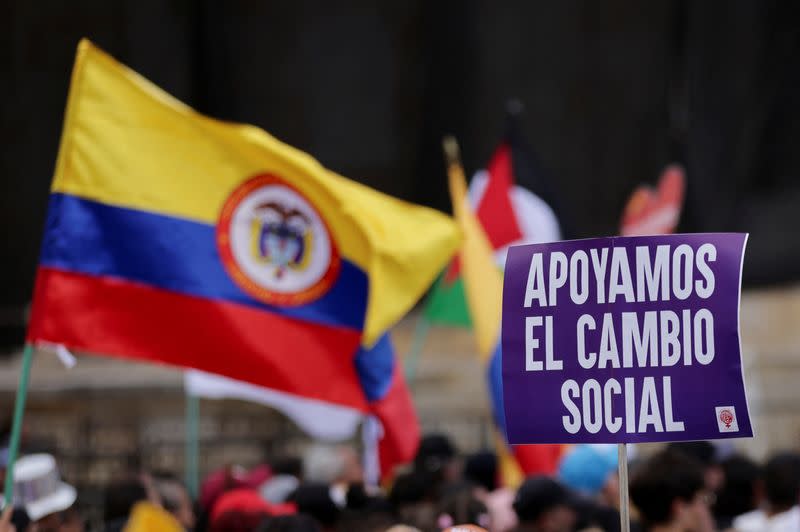Tens of thousands of Colombians march in support of Petro's reforms
- Oops!Something went wrong.Please try again later.
BOGOTA (Reuters) - Tens of thousands of people marched in Colombia's biggest cities on Wednesday to support reforms proposed by President Gustavo Petro which he says will tackle inequality, but which have struggled to win congressional approval.
The demonstrations mark the latest in a series of tit-for-tat rallies convened by the opposition against the reforms, which they argue are economically damaging, and also by Petro, the country's first leftist leader, in favor of them.
"We want (the reforms) to go ahead," said 69-year-old Hernando Pamo as he marched toward Bogota's central square. "The people are tired of all the stealing by big (businesses)."
The reforms will benefit working people, said Fernando Riascos, a 62-year-old farmer.
"It's a show of affection for our president," he said.
Petro, who has promised to begin to undo centuries of inequality in the South American country and ink peace or surrender deals with armed groups, thanked crowds in Plaza Bolivar for backing progressive reforms.
Traditional political parties and economic elites do not want the reforms to go ahead, Petro said.
"This is our answer," Petro said, accompanied by leaders of major unions. "The more they challenge us to confrontation, the happier we are. We will not retreat, the history of Colombia has changed definitively and there is no going back."
Petro also announced he will break diplomatic relations with Israel over its actions in Gaza.
Marches around the country were peaceful, the head of the national police said.
Tens of thousands marched in late April against the reforms, shortly after a Senate committee rejected a proposed health reform which the government has said would strip power from insurers and expand access to healthcare.
Critics have said the health reform would open the door to corruption, but the government is expected to propose a new version.
Pension and labor reforms are still being debated by lawmakers.
(Reporting by Herbert Villarraga and Nelson Bocanegra, Writing by Oliver Griffin and Julia Symmes Cobb; Editing by Philippa Fletcher)





